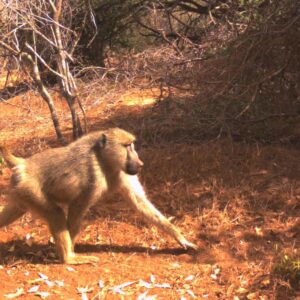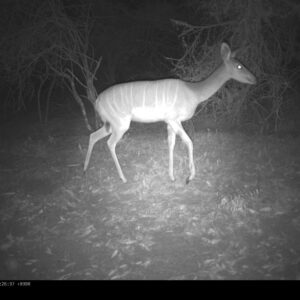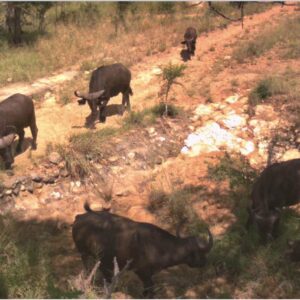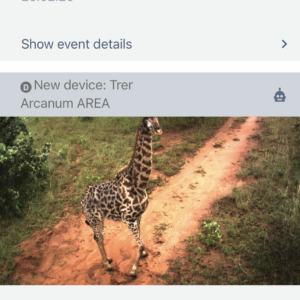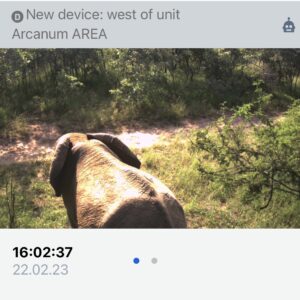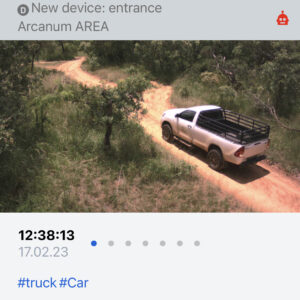Illegal wildlife trade is estimated to be worth billions of dollars annually. It’s the fourth largest illegal trade in the world, right after drugs, human trafficking, and counterfeiting. Thousands of exotic animals (elephants, rhinos, and tigers, to name a few) are killed every year. In many Asian countries, but mostly in China and Vietnam, their body parts are still used in traditional medicine.
Poaching as organized crime
Many might think that only wild animals are at threat, but sadly, that is untrue. In 2017, 4-year-old white rhino Vince was shot in the head at Thoiry Zoo in France.
Rhino horns have been stolen from museums as well. In 2011, criminals entered the Museum of Hunting and Nature in Paris, attacked two employees with a paralyzing gas, and stole a rhino horn. According to the Wildlife Justice Commission 2022 report, during the years 2012-2021, more than 7.5 tonnes of rhino horns were seized globally from illegal trade. Is it that surprising, knowing that rhino horns are more expensive than gold, diamonds, and… cocaine? Probably not.
Although poaching is a global crime, it is particularly a problem in several African countries, as well as in Brazil and India. In addition to being highly unethical, it has serious environmental consequences.
Many exotic species are at risk of going distinct during our lifetime
The IUCN (International Union for Conservation of Nature’s Red List of Threatened Species) list includes more than 42,000 species that may soon no longer exist in nature. By 2050, the African forest elephant, the African lion, and many other species may all be gone from our planet. Future generations may think of rhinos as mystical animals that lived in ancient times, like dodos or dinosaurs, and the Indian leopard (Panthera pardus fusca) may remain only as Bagheera, the fictional character in The Jungle Book.
The fight against poaching in Africa
In 2022, 448 rhinos were killed for their horns in South Africa. 124 of them were killed in Kruger Park, the largest game reserve in Africa. Although it is a 40% decrease compared to those killed in 2021, it is still 124 too many.
The fight against poaching is not only difficult, but dangerous too. Poachers are often part of a criminal network and have access to advanced technology and weapons, while all a rhino has to protect itself is its horn. The fight between a rifle and a horn is an unfair fight. But this can be changed with the help of technology.
“One such technology is Reconeyez,” says Peter Stolwerk, co-founder of South African security company Arcanum Africa.
Arcanum Africa provides security solutions for safeguarding wildlife, businesses, and personal living spaces. Reconeyez has been their go-to outdoor security solution because it can be used even in the most rural areas, where previously no monitoring solution could have been deployed.
Approximately 90% of security technology today is being manufactured in China. The Chinese-made security systems have been associated with data breaches and espionage, so they have been banned by governmental organizations in the USA, Australia, and the UK. That is also why anti-poaching units should prefer EU-manufactured security solutions that guarantee strict data regulations.
It’s no surprise, as China is the main destination for illegal trade. “Reconeyez was initially developed for border control and the military, so they have high standards when it comes to data security,” explains Stolwerk, being hopeful that the system that is often used to protect critical infrastructure and power plants can be considered safe to use for protecting endangered animals as well.
Testing Reconeyez for anti-poaching efforts
Peter Stolwerk decided to test his assumptions with a test run in Greater Kruger National Park, one of South Africa’s prominent National Game Parks.
“We were able to create a large detection zone covering all known entry and exit routes or potential soft target areas and had eyes on the reserve 24/7. The fact that Reconeyez is fairly small and compact meant that we were able to camouflage the detectors successfully. The long battery life and quick swap battery system made power management very simple,” commented Greater Kruger National Park’s ranger, confirming that Reconeyez helped them with their daily operations.
Security systems are often difficult and time-consuming to install, but Reconeyez can be installed in minutes. Stolwerk explains that the training requirement is minimal, because Arcanum Africa supports the setup and activation on the monitoring platform, and they provide instructions on how to deploy the solution in order to guarantee the best results and the longest battery performance, and to get alerts only when essential. After that, park rangers can quickly install or re-deploy the solution whenever needed.
- Real photo from Reconeyez cloud
- Real photo from Reconeyez cloud
- Night camera photo (real photo from Reconeyez cloud)
“Similarly to other game reserves, the main struggle in Greater Kruger National Park is a large area with little to no mobile coverage. Reconeyez devices use mesh connectivity to communicate with each other, so rangers can secure areas that were previously almost impossible to protect,” says Stolwerk.
The trial period in Greater Kruger National Park was completed successfully, and soon, the Reconeyez systems will be strategically deployed throughout the park*.
It will not safeguard only the park’s wildlife but rangers as well. According to global data, two conservation rangers are murdered every week, so protection is much needed. With security technology, they can monitor how many people they are following and what weapons they are carrying. In areas with mobile data, rangers can even receive push notifications to their mobile devices with updates and new alarm photos. That can make their job a lot safer and provide fast reaction times, hopefully preventing poaching before it actually occurs.
- Screenshot from Reconeyez mobile app
- Screenshot from Reconeyez mobile app
- Screenshot with car from Reconeyez mobile app
With technology advancements, there has been a leap forward in the battle against poaching. Raising awareness on such solutions could ensure that future generations can witness the magnificence of wildlife, thriving in their natural habitats.

Autonomous security system: Bridge (on the left) and detector (on the right)
*By the time this article is published, Arcanum Africa will have deployed Reconeyez to a game farm in Cape Town, a ranger camp in Kenya, game reserves currently trialing the system, and future deployments planned at several private game reserves in South Africa.
For more information about Reconeyez, visit reconeyez.com or contact our sales team via info@reconeyez.com.

